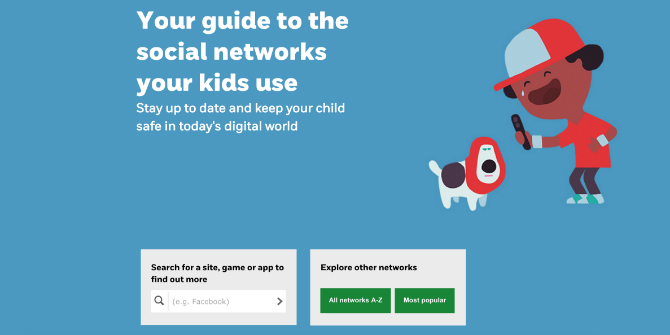 What happens when separating parents disagree about how their family will interact with others and with each other on social media? These disagreements often cause frustration, hurt feelings, and at times, complicated legal issues – issues that many countries are beginning to grapple with. Stacey Steinberg and Kaytlin O’Sullivan talk about the steps separating parents can take to reduce conflict.
What happens when separating parents disagree about how their family will interact with others and with each other on social media? These disagreements often cause frustration, hurt feelings, and at times, complicated legal issues – issues that many countries are beginning to grapple with. Stacey Steinberg and Kaytlin O’Sullivan talk about the steps separating parents can take to reduce conflict.
The legal landscape in the United States
In the United States, courts rarely limit a parent from speaking negatively about the other, even though such speech could potentially cause harm to children. For example, the Massachusetts Supreme Court recently held that an initial order restraining a father from speaking negatively about a mother on social media was unconstitutional. The court noted that while the state does have an interest in protecting children from parents talking negatively about one another online, “merely reciting the interest” was insufficient to satisfy the “heavy burden of justifying a prior restraint” on speech under the U.S.’s strong First Amendment protections.
The court highlighted that parents could enter into voluntary agreements not to disparage one another on social media. Such an agreement would likely be upheld. Moreover, the court stated that
“the best solution would be for parties in divorce and child custody matters to rise above any acrimonious feelings they may have, and, with the well-being of their children paramount in their minds, simply refrain from making disparaging remarks about one another.”
How different is the US from other countries?
In the United States, courts are reluctant to enter orders that prohibit future speech due to robust speech protections, explained Rachael Jones, a Fellow at the University of Florida’s Brechner Center for Freedom of Information. This is especially true where the prohibition is mandated from the State, like the one entered in the Massachusetts case highlighted above. ”These are known as prior restraints, which are impermissible under the First Amendment unless the harm that would come from the speech is grave, that without the restraint the harm is almost definite, and that the harm cannot be mitigated through less restrictive means”, Jones said.
In the United Kingdom, prior restraints on speech are often permissible if the speech at issue could infringe on a person’s right to privacy. Other forms of speech, like hate speech, are also more limited in some European countries than they are in the United States. Therefore, while free speech is a bedrock principle of all democratic societies, the child custody case cited above might play out differently in courts of other nations than it did in Massachusetts.
Despite the differences in how courts may interpret restrictions on future speech, animosity between co-parents is a common occurrence, and many countries grapple with how separating parents can work through conflicts to look out for the children’s best interest.
When parents separate, experts worldwide encourage parents to brainstorm together about screen time, safety, and ultimately, how they can be positive digital media role models for their children.
Planning ahead
Florida family law attorneys Joshua Silverman and Tee Lee suggest that parents consider working through these issues early in a separation. They know firsthand that when parents separate, it can be difficult to address not only the big issues like where kids will live, but also details like how the co-parents will discipline their children or how the co-parents will foster communication with one another during long weekends apart.
Separating parents often enter into agreements to establish child custody and visitation rights. In the United States, these agreements are called parenting plans, defined by Merriam-Webster as “a document prepared during a divorce or separation that sets out the plan for custody, time-sharing, decision-making, and a method of resolving disputes.” This document serves as a road map of sorts after the case finalizes.
Parenting plans do not traditionally address social media and technology use, and as the recent Massachusetts Supreme Court case shows, U.S. courts are unlikely to prohibit parents from future speech without an agreement between the parties or a showing of specific, grave, and almost certain harm.
However, parents can get creative as they create a plan for their family. If both parents want their plan to address online sharing or internet supervision and can agree to the terms, courts are generally willing to enforce such agreements.
Steps parents can take
- Decide what is off-limits to share.
Lee believes that parents should give kids veto power about what parents post about them online, and that perhaps co-parents should have veto power as well.
“It would be great if parents either decided to agree or disagree on whether it’s appropriate to post pictures of children in bathing suits online,” Silverman explained. “Or they could agree or disagree on whether or not to post medical information on social media.”
- Discuss social media monitoring.
Lee encourages parents to collaborate on how kids will use the internet and social media, especially as they approach adolescence. While some parents will affirmatively choose not to monitor their kids online, most agree that some level of supervision is necessary as kids start searching online and using social media. “Co-parents can develop a plan to divide the responsibility of supervision,” Lee explains. She suggests parents first consider if they will monitor their children’s online communication and then decide how they will do so.
- Be Specific.
Both attorneys stressed that clear language is important. “Were I drafting a parenting plan,” Silverman explained, “I would be very careful in how to phrase sharenting provisions. You are talking about prior restraint on speech. Poorly drafted provisions are a legal minefield and a contempt trap.”
The key is be intentional with language choice. Lee highlighted that the more specific co-parents are, the more likely the court will be able to step in and solve problems. Clearly, posting a copy of a child’s blood test result online would be posting medical information, but does posting that a child is home with the flu count as posting medical information or is it simply sharing what a parent is doing that day?
- Learn More.
“The most important thing is education,” Silverman advised. “There are already mechanisms in place to provide information to co-parents in child custody disputes. Many states in the U.S. require parents in child custody cases to take a parenting course. In light of changing times,” Silverman proposed, “could safer sharing principles and concerns be added to that State-mandated curriculum?”
Even if co-parents cannot agree on everything child-custody related, they could consider a partial agreement. Lee explained that even if parents do not agree to other aspects of co-parenting (like where the child will go to school or who will have the child over holiday breaks), co-parents are generally permitted to come up with a partial parenting plan. Co-parents can agree to a social media plan and leave other decisions, like time-sharing, to the judge.
All parents would benefit from addressing these issues before conflict arises. Constructing space for these agreements in parenting plans can help families work together even when parents live apart.
This essay should not be considered legal advice. Please consult an attorney or local advocate if you have specific questions or concerns.
This post gives the views of the authors and does not represent the position of the LSE Parenting for a Digital Future blog, nor of the London School of Economics and Political Science.
Featured image: photo by Tero Vesalainen on Pixabay





